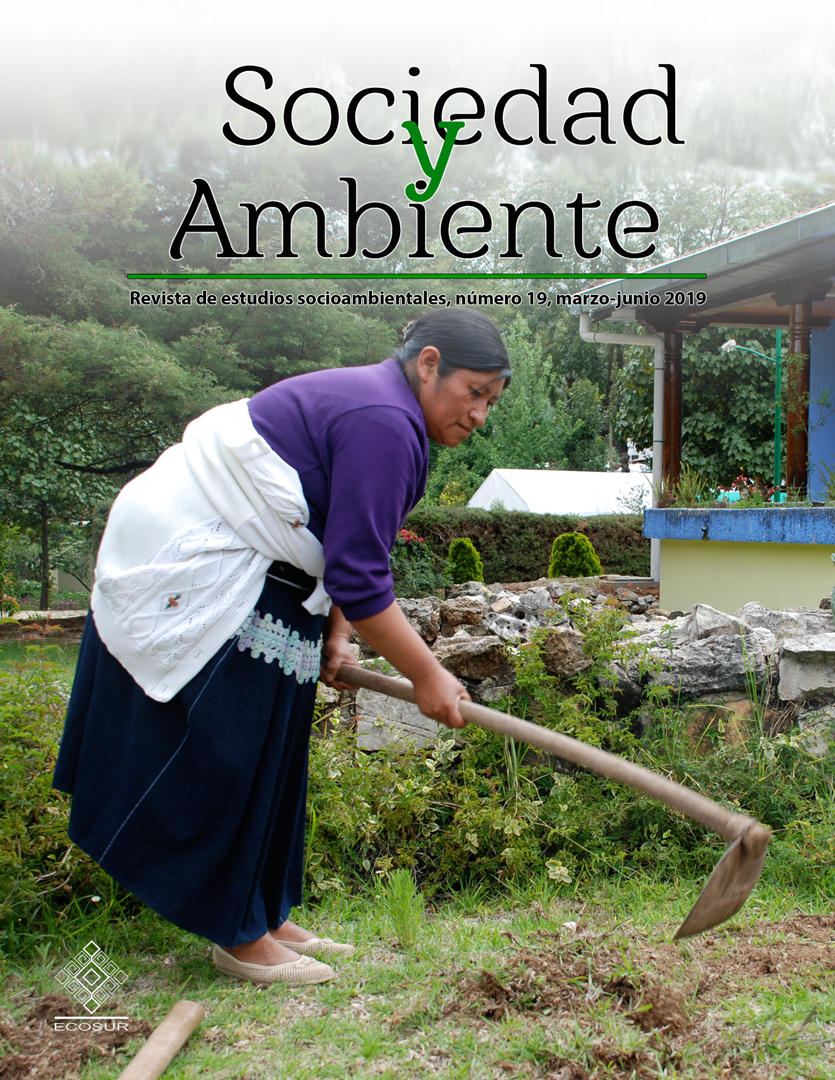Abstract
Using the notion of heritage, the article analyzes the way people classify certain goods as inalienable, especially in contexts involving controversy over limited resources. Although this type of approach is useful for a variety of cases of study, the paper focuses on the way the inhabitants of a region known as Sierra de Catorce, in the Mexican state of San Luis Potosí, —an area that attracts Catholic pilgrims, indigenous Huichol people, tourists and mining companies— seek to control access to their natural resources through political organizations linking regional identity with mining work.

Sociedad y Ambiente by ECOSUR is licensed under a Creative Commons Reconocimiento-NoComercial-SinObraDerivada 2.5 México License
Downloads
Download data is not yet available.

